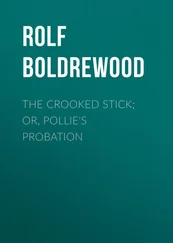Rolf Boldrewood - War to the Knife
Здесь есть возможность читать онлайн «Rolf Boldrewood - War to the Knife» — ознакомительный отрывок электронной книги совершенно бесплатно, а после прочтения отрывка купить полную версию. В некоторых случаях можно слушать аудио, скачать через торрент в формате fb2 и присутствует краткое содержание. Жанр: foreign_antique, foreign_prose, на английском языке. Описание произведения, (предисловие) а так же отзывы посетителей доступны на портале библиотеки ЛибКат.
- Название:War to the Knife
- Автор:
- Жанр:
- Год:неизвестен
- ISBN:нет данных
- Рейтинг книги:4 / 5. Голосов: 1
-
Избранное:Добавить в избранное
- Отзывы:
-
Ваша оценка:
- 80
- 1
- 2
- 3
- 4
- 5
War to the Knife: краткое содержание, описание и аннотация
Предлагаем к чтению аннотацию, описание, краткое содержание или предисловие (зависит от того, что написал сам автор книги «War to the Knife»). Если вы не нашли необходимую информацию о книге — напишите в комментариях, мы постараемся отыскать её.
War to the Knife — читать онлайн ознакомительный отрывок
Ниже представлен текст книги, разбитый по страницам. Система сохранения места последней прочитанной страницы, позволяет с удобством читать онлайн бесплатно книгу «War to the Knife», без необходимости каждый раз заново искать на чём Вы остановились. Поставьте закладку, и сможете в любой момент перейти на страницу, на которой закончили чтение.
Интервал:
Закладка:
Suddenly a change came over the moody squire who had thus exercised the intelligences of the household.
On a certain morning he ordered the dog-cart, in which he drove himself to the railway station, noticing the roadside incidents and mentioning the stud generally, in a manner so like old times, that the groom felt convinced that the desired change had taken place; so that hunting, shooting, and all business proper to the season would go on again with perhaps renewed energy.
"When the master jumped down and ordered the porter to label his trunk 'London,' he was a different man," said the groom on his return. "He's runnin' up to town to have a lark, and forgit his woes. That's what I should do, leastways. He ain't agoin' to make a break of it along o' Miss Tollemache, or any other miss just yet."
Though this information was acceptable to the inmates of a liberally considered household, who one and all expressed their satisfaction, the situation was not destined to be lasting. Within a week it was widely known that Massinger Court was for sale, "just as it stood," with furniture, farm-stock, library, stud, everything to be taken at a valuation – owner about to leave England.
What surprise, disapproval – indeed, almost consternation – such an announcement is calculated to create in a quiet county in rural England, those only who have lived and grown up in such "homes of ancient peace" can comprehend. A perfect chorus of wonder, pity, indignation, and disapproval arose.
The squirearchy lamented the removal of a landmark. The heir of an historic family, "a steady, well-conducted young fellow, good shot, straight-goer in the field – knew something about farming, too. Not too deep in debt either? That is, as far as anybody knew. What the deuce could he mean by cutting the county; severing himself from all his old friends – his father's friends, too?"
This was the lament of Sir Giles Weatherly, one of the oldest baronets in the county. "D – n it," he went on to say, "it ought to be prevented by law. Why, the place was entailed!"
"Entail broken years ago; but that wouldn't mend matters," his companion, Squire Topthorne, replied – a hard-riding, apple-faced old gentleman, credited with a shrewd appreciation of the value of money. "You can't force a man to live on a place, though he mustn't sell it. It wouldn't help the county much to have the Court shut up, with only the old housekeeper, a gardener, and a maid, like Haythorpe. Besides, some decent fellow might buy it – none of us could afford to do so just now. I couldn't, I know."
"Nor I either," returned Sir Giles, "with wheat at thirty shillings a quarter, and farms thrown back on your hands, like half a dozen of mine. But why couldn't Roland have stopped in England; married and settled down, if it comes to that? There are plenty of nice girls in Herefordshire; a good all-round youngster like him, with land at his back, might marry any one he pleased."
"That's the trouble, from what I hear," said Mr. Topthorne, with a quiet smile. "Young men have a way of asking the very girl that won't have them, while there are dozens that would. Same, the world over. And the girls are just as bad – won't take advice, and end up as old maids, or take to 'slumming' and Zenana work. I hear it's Hypatia Tollemache who's responsible."
"Whew-w!" whistled Sir Giles. "She's a fine girl, and knows her value, I suppose, but she's bitten by this 'New Woman' craze – wants to regenerate society, and the rest of it. In our time girls did what they were told – learned house-keeping, and thought it a fair thing to be the mistress of some good fellow's household; to rear wholesome boys and girls to keep up the honour of old England. I have no patience with these fads."
"Well! it can't be helped. Have you any idea who is likely to make a bid for the place?"
"Not the slightest. We're safe to have a manufacturer, or some infernal colonist – made his money by gold-digging or sheep-farming, drops his aitches, and won't subscribe to the hounds."
"Suppose we do? You're too hard on colonists, who, after all, are our own countrymen, with the pluck to go abroad, instead of loafing at home. Often younger sons, too – men of as good family as you or I. We're too conservative here, I often think. They always spend their money liberally, give employment, and entertain royally if they do the thing at all."
"I suppose there's something in what you say; but all the same, I don't like to see a Massinger go out of the county where his family have lived since the time of Hugh Lupus. Viscount the Sire de Massinger came out of Normandy along with Duke William. He was a marshal commanding a division of archers at Hastings. 'For which service both the Conqueror and Hugh Lupus rewarded him' (says an old chronicle) 'with vast possessions, among which was Benham Massinger in Cheshire; and the said Hamon de Massinger was the first Baron de Massinger.' There's a pedigree for you! Pity they hadn't kept their lands; but they're not the only ones, as we know too well."
These and the like colloquies took place during the period which intervened between the direful announcement of the sale of the Court and its actual disposal by an auction sale, at which the late owner was not present.
It was then made public that the stranger who bought that "historic mansion, Massinger Court, with lands and messuages, household furniture, and farm stock, horses and carriages," was acting as agent only for Mr. Lexington, the great Australian squatter, who had made a colossal fortune in New South Wales and Queensland, numbering his sheep by the half-million and his cattle by the twenties of thousands. He had, moreover, agreed to take the furniture, books, pictures – everything – at a valuation, together with the live stock, farm implements, and – in fact, the whole place, exactly as it stood; Sir Roland, the auctioneer said, having removed his personal belongings previously to London immediately after offering the Court for sale. He only returned to bid farewell to the friends of his youth and the home of his race.
Yes! it was hard – very hard, he thought, at the last. There was the garden – old-fashioned, but rich in fruit and flower, with box-borders, clipped yew hedges, alleys of formal shape and pattern; the south wall where the fruit ripened so early, and to which his childish eyes had so often been attracted; the field wherein he had, with the old keeper in strict attendance, been permitted to blaze at a covey of partridges – he remembered now the wild delight with which he marked his first slain bird; the stream in which he had caught his first trout, and whence many a basket had been filled in later days; the village church, under the floor of which so many de Massingers lay buried – the family pew, too large for the church, but against the size and shape of which no innovating incumbent had thought fit to protest.
How well he remembered his mother's loving hand as he walked with her to church — every Sunday, unless illness or unusual weather forbade! That mother, too, so gentle, so saintly sweet, so charitable, so beloved, why should she have died when he was so young? And his father, the pattern squire, who shot and hunted, lived much at home, and was respected throughout the county as a model landlord, who did his duty to the land which had done so much for the men of his race? Why should these things be?
He recalled his mother's dear face, which grew pale, and yet more pale, during her long illness – her last words bidding him, to be a good man, to remember what she taught him, and to comfort his poor father when she was gone. And how he kneeled by her bedside, with her wasted hand in his, praying with her that he might live to carry out her last wishes, and do his duty fearlessly in the face of all men. Then the funeral – the long train of carriages, the burial service, where so many people wept, and he wished – how he wished! – that he could be buried with her. His father's set face, almost stern, yet more sorrowful than any tears. And how he went back to school in his black clothes, miserable and lonely beyond all words to describe.
Читать дальшеИнтервал:
Закладка:
Похожие книги на «War to the Knife»
Представляем Вашему вниманию похожие книги на «War to the Knife» списком для выбора. Мы отобрали схожую по названию и смыслу литературу в надежде предоставить читателям больше вариантов отыскать новые, интересные, ещё непрочитанные произведения.
Обсуждение, отзывы о книге «War to the Knife» и просто собственные мнения читателей. Оставьте ваши комментарии, напишите, что Вы думаете о произведении, его смысле или главных героях. Укажите что конкретно понравилось, а что нет, и почему Вы так считаете.












